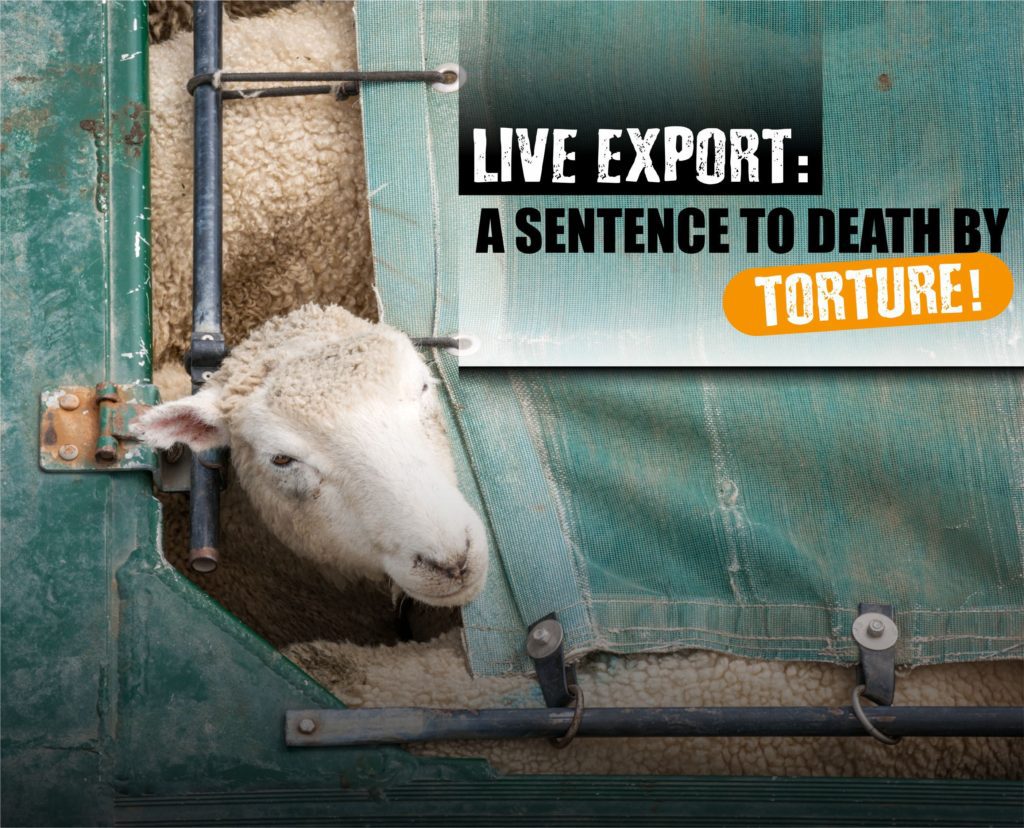
Live Export: A Sentence To Death By Torture
Abusing animals for human benefits goes centuries back, and the seventeenth century saw a growth in animal trade, during the Mughal regime. Horses were transported by sea to please the interest of Mughal rulers, from as far as Persia and some Arabian countries. The Jahangirnama records the arrival of Muqarrab Khan in court to pay homage in 1610 who brought many Abyssinian slaves and Arabian horses for the then supreme leader of the country. It was believed that if 6 horses were sent to be transported; only one would survive to be gifted to emperors. These animals were never likely to survive in the abnormally harsh journeys they were sent on.
Today, centuries later, there are some laws and rules which protect animals from such torture, but the situation remains largely the same. Maybe horses have been spared for the time being, but goats, sheep, and cows are still traded, and they are exported in horrific conditions of abysmal torture to countries where poor or no current laws of animal protection and welfare exist. Animals are transported by sea or air, treated as mere commodities, thrown into these flights of shame.
Thousands of sheep, goats or cows, trapped in a moving ship inside loose containers face exhaustion, with little food and water to survive the dreadful journeys. Many animals don’t make it – they die due to trauma, heat strokes, dehydration, injuries, fatigue, and diseases they catch on their way. All animals who die during the course of the journey, are dumped into the ocean, transportation chambers are never cleaned, leaving animals to lie in their own feces- and this is just the tip of the iceberg.
Lack of any veterinary care on board the ship/flight and the lack of any inspections on the way these animals are exported, leave these animals oat the mercy of their exporters, giving the exporters an opportunity to bend laws according to their own convenience. No cameras are allowed inside the ship, and the exporters make it a point to hide the manner in which these animals are transported from one country to another.
In India, the law recognizes that it is the fundamental duty of every citizen and that of the state to protect and show compassion for the environment, wildlife, and all living creatures. Yet, exporting animals is not only unethical but also effectively illegal, as these animals are subject to cruelty as defined by the Prevention of Cruelty to Animals Act 1960 (PCA). Export of live animals defeats the purpose of the Act which is to prevent unnecessary pain and suffering on animals in India. None of the export rules and procedures made by the government specifies how animals are to be exported.
In the recent wake of the situation, and the continuous uproar of the public to stop this cruel practice once and for all, FIAPO is campaigning to Stop Live Export of animals across the country. Despite having strong animal protection laws, live export from India is still a mockery of the lives of these animals and the laws we have to protect them. Recently, more than 3000 sheep were transported from the Nashik Airport, bringing together several activists and animal lovers. FIAPO has asked the Chief Minister of Maharashtra to ban the practice of live export, like in the state of Gujarat.
While we make resolutions for a brighter new year; thousands of animals in live export face the darkest phase of their lives. Putting money ahead of animals’ pain is unethical on several grounds. Animals are not iron or wheat. They are sentient souls who cannot protest against what happens to them. Handing them to individuals or groups that have no concern of animal welfare, onto ships or flights with no special facility to carry them is completely immoral and effectively illegal. The government needs to recognize and take note of this and put an end to this extremely cruel practice.